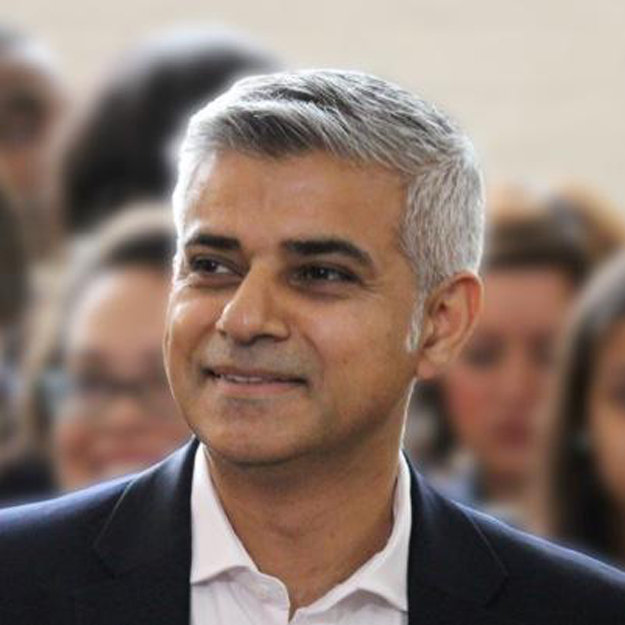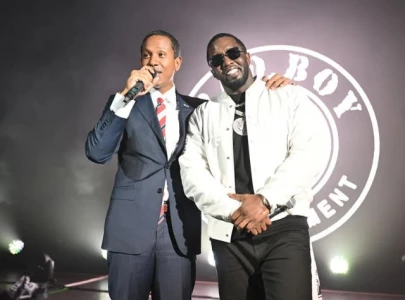
The dynamic British capital pipped Tokyo and Paris to top the global poll, which asked experts on women's issues in 19 megacities how well each metropolis works for women. "There is no other city in the world where I would want to raise my daughters," Mayor Sadiq Khan, who assumed office in May 2016, told the Thomson Reuters Foundation. The first Muslim to lead any Western capital, Khan wants his city to be a trailblazer on gender equality too.
He praised London as one of the world's most progressive capitals, where women take key roles across society, leading heavily male-dominated workforces that fight fires, catch criminals and run governments. But the mayor warned against complacency. He highlighted the city's significant gender pay gap and said there were still too few women role models at the highest levels in public life.
"As a proud feminist, I'm committed to doing everything I can to remove these barriers to women," he added. "I want London to not only be the best city in the world to be a woman, I want it to be a trailblazer in fighting (for) gender equality in all its shapes and forms." The number of megacities housing more than 10 million people has tripled since 1990 to 31, including six in China and five in India, with the United Nations expecting this to hit 41 by 2030.
The poll was only conducted in the largest city in each country, with experts asked how well women are protected from sexual violence and harmful cultural practices, and about their access to healthcare and finance.
Women’s harassment app
Hidden Problems
Tokyo was rated the safest city when respondents were asked if women lived without the risk of sexual violence including rape, attack and harassment. London came fifth. Governor Yuriko Koike said she was proud of the result and would focus on further improving safety in the run up to the 2020 Olympic and Paralympic Games. She said the city also aimed to increase women's representation in society and the economy. "
We are moving forward with programmes to encourage diversity and make Tokyo a place where everyone - women included - can lead more vibrant lives," she said. But women's rights campaigners said sexual violence remained hidden in Tokyo, one of the first cities to introduce women-only train carriages due to groping. "Sexual violence is not visible in Japan. People don't talk about (it)," said activist Kanoko Kamata, founder of women's empowerment group Chabudai Gaeshi Joshi.
London, where the state-run National Health Service provides free care, came top for health and also for access to economic resources such as education, land, and financial services. However, Sophie Walker, head of Britain's Women's Equality Party, said she was shocked London topped the poll, citing the gender pay gap and 'extortionate' childcare costs. She said violence against women was also rife, with 60,000 domestic violence incidents reported to the police last year.
"Frankly it's a scandal that in one of the richest cities in the world, we see women doing so badly," said Walker. "That London has come top of this poll speaks volumes about the scale of the task there is still to do to make women equal all around the world." Sam Smethers, head of the Fawcett Society, Britain's leading women's rights charity, said the country's planned exit from the European Union could erode women's rights and living standards.
"When there's a shrinking economy, it's women who are disproportionately affected," she said. "London is going to suffer badly and that will have a major impact on women."
Muslim couple harassed in London, woman's niqab called 'disgusting'
Street Harrassment
London's traditional rival Paris came third. It ranked second on health and fourth least risky for sexual violence. Paris Mayor Anne Hidalgo said the result showed the French capital was "a welcoming, fulfilling and safe city" for women. She highlighted campaigns to promote equality and reduce street harassment and said she planned to expand childcare and strengthen women's roles in startups and the digital economy.
"Progress has been made, but there is still lots to be done to fight discrimination and reach real equality," she added. But entrepreneur and prominent feminist Marie Beauchesne said harassment remained a big problem. "Paris still has a long way to go," she said. "It's extremely rare to go one week without being harassed."
New York came seventh overall and ninth equal on economic opportunities. Mayor Bill de Blasio's office said it had introduced a host of female-friendly measures, including tackling domestic violence and putting more women into top jobs in City Hall. But Sonia Ossorio, president of the National Organization for Women, New York, said the city must act on sexual assault, increase healthcare access, tackle pay equality, particularly for Latino and black women, and reduce poverty for single mums. "These findings make clear that we still have work to do."



1731916090-0/sabrina-(3)1731916090-0-165x106.webp)













COMMENTS
Comments are moderated and generally will be posted if they are on-topic and not abusive.
For more information, please see our Comments FAQ